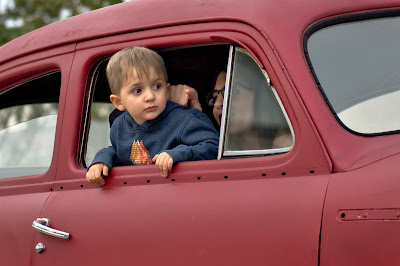Are we there yet?
Are we there yet? So goes the child’s universal cry from the back seat of the family car on a road trip. Are we there yet?
When the destination is known and the trip has been mapped, the answer is probably fairly straightforward. Nearly there, darling, the adult driver might say, telling either the truth or a version thereof to quiet the child. But when the destination is less clear, the trip too complex to plot on a map, or when there is no GPS in the car, the answer is a lot more difficult to give.
In the recently released Netflix series Maid, I am asking the question, Are we there yet?, in just about every single one of the ten episodes. And the answer every episode is a very clear, No. Because every episode takes us on a side trip of single motherhood, poorly paid manual work, mental illness, domestic abuse, home and food insecurity, addiction…you name it, we see it. Any hold on the wheel or ability to stick to the original route is precarious at best, impossible most days: Alex, the maid of the title, was heading to college to study creative writing when an unplanned pregnancy took her down a long side road of hardship and heartbreak.
It’s a TV drama, but based on the real-life experiences of Stephanie Land, whose 2019 memoir Maid: Hard Work, Low Pay and a Mother’s Will to Survive became a New York Times bestseller. The endless round of misfortunes unfolding on the screen that arise from no choice or bad choices, or from lack of stability and security are rooted in hardscrabble reality. Ms. Land pulled herself back onto the main route by sheer force of will and persistence, eventually earning a BA in English and Creative Writing, and working on her writing through the Economic Hardship Reporting Project, an organization founded by Barbara Ehrenreich that promotes high-quality journalism on economic inequality. In the end, Ms. Land got to where she had been going in the beginning.
In this life, if we are lucky enough to have chosen the destination we’re heading towards and we have the capacity to get ourselves there, then we are fortunate indeed. If any side trips along the way are more pleasure than problem, then our good fortune is boundless. And certainly, making the trip with others along for the ride makes our journey better, safer, and more enjoyable. Even when the refrain from the back seat is an endless, Are we there yet? Because it is so very good, one day, to turn around and be able to say: Yes, darling, we are there.
———
Land acknowledgement: I respectfully recognize that I live on the original lands of Anishinaabe, Cree, Oji-Cree, Dakota and Dene peoples, and on the homeland of the Métis Nation.
Photo by Tim Mossholder on Unsplash




My journey more closely resembles a snarled skein of wool than a direct line and I don't feel as though I've ever arrived anywhere, it just goes on and on...until it doesn't. I'm so happy for the women who had such a definite goal and that she achieved it, thanks for this story Amanda.
ReplyDelete